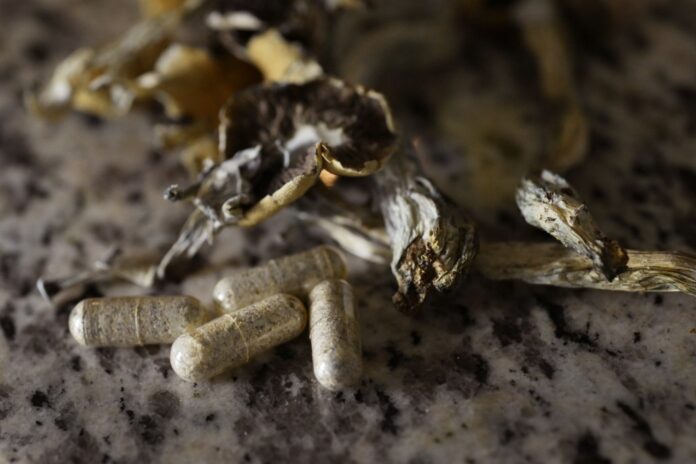Anyone seeking to become part of Colorado’s psychedelics industry by growing mushrooms, operating a therapy center, or manufacturing psilocybin edibles now has guidance on how to do so legally.
The state’s Department of Revenue recently finalized the regulations surrounding psychedelic-assisted therapy, which is expected to roll out in 2025. Colorado is the second state after Oregon to legalize the model, which has shown promise in treating mental health conditions like depression and end-of-life distress.
The new regulations outline licensing processes for psilocybin mushroom growers, manufacturers, and drug testing labs, as well as so-called “healing centers” where psychedelic-assisted therapy will take place. They spell out permitted and prohibited actions at each of these businesses; offer strict guidance on waste disposal; define drug serving sizes and product labeling requirements; and set penalties for individuals caught breaking the laws, among other things.
The DOR is one of two state agencies that wrote rules governing the nascent industry. Earlier this year, the Department of Regulatory Agencies published its occupational protocols and training requirements for facilitators, meaning those people who supervise individuals under the influence of a psychedelic experience. Those considering obtaining a business license in this sector should read the regulations in full.
Here are five things to know about Colorado’s new Natural Medicine regulations.
Products beyond dried psilocybin mushrooms are allowed
Individuals who undergo psychedelic-assisted therapy may have multiple ways to consume psilocybin mushrooms. Colorado’s new laws allow manufacturers to produce a variety of edibles, including tea bags, capsules, chocolates, gummies, tablets and tinctures.
It’s worth noting that these products, along with dried mushrooms, will not be for sale in a retail store or dispensary. They will only be supplied to adults ages 21 and up at healing centers during an administration session, the formal name for a guided trip.
Additionally, Colorado’s law bans manufacturers from using synthetic tryptamines, such as 4-acO-DMT, and requires edibles to be tested for synthetics before they are distributed.
Psychedelic serving sizes set and labeling requirements
Even though manufactured mushroom products will not be sold to the public in retail stores, regulators set serving size limits for various products to help standardize them.
A single serving is defined as 10 milligrams of total psilocin, the psychoactive compound that causes effects like hallucinations. That is about how much is active in one gram of dried mushrooms. Edibles may contain up to five grams of psilocybin mushrooms or 50 milligrams of psilocin in total. Tinctures must come with a device that ensures facilitators can measure out an individual serving.
As far as labeling, the state requires a warning label about potential interactions with other drugs, and prohibits companies from using cartoons and colors that may appeal to children. Additionally, companies may not use the words “candy” or “candies,” or iconography from indigenous cultures.

Healing centers may operate as part of other healthcare facilities
Colorado permits healing centers to be co-located at facilities that offer other healthcare services. However, exactly where they open may be impacted by additional local regulations.
Separately, state law allows healing centers to share a building with a mushroom cultivation and manufacturing facility, as long as they have distinct areas where each business operates.
Adverse health incidents must be tracked and reported
If anyone experiences a serious or life-threatening incident that requires medical intervention or if someone dies, healing centers must report that to the state within two business days. They must also track and keep records of all adverse health events.
Businesses must diligently track psilocybin output and waste
While Colorado’s framework does not permit retail stores, regulators put in place strict guidelines for tracking psilocybin mushrooms and product inventory to ensure they stay within the legal system. Part of that includes specific rules for how to dispose of waste related to cultivation and manufacturing, as well as unused products at healing centers.
Sign up for our weekly newsletter to get health news sent straight to your inbox.
Originally Published:



